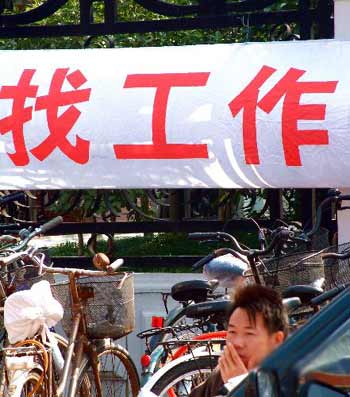| Home / Education / News | Tools: Save | Print | E-mail | Most Read |
| Education Resource Allocation Still An Issue |
| Adjust font size: |
The rising costs of education and the inappropriate allocation of resources for education are always a central feature of the annual plenary sessions of
Half a year after Wang graduated from a college in As a student, Wang's annual tuition was more than the total annual income of his family. When he was unable to pay over 30,000 yuan (about US$3,872) in fees, college authorities withheld his certificate of graduation. Without the certificate, Wang was unable to find work. Chinanews reported on February 26 that Wang was just one of thousands of students who found themselves in a similar situation. According to a report from the About 5 million college students are expected to graduate this year, 820,000 more than in 2006. According to the 2007 Blue Book of Chinese Society published by the Last year, in a bid to tackle the issue, the central government abolished tuition and other incidental charges in several elementary schools in certain provinces. On the eve of this year's Spring Festival, during a visit to In addition to increasing budget allocations for education, the government is also considering on giving the promotion of employment legal standing. At the first executive meeting of the State Council this year convened by Premier Wen Jiabao, the draft Employment Promotion Act was discussed and passed in principle. On February 26, the draft went through its first deliberation at the 26th Session of the 10th National Party Congress Standing Committee. Education resources allocation will continue to be a major issue of discussion at the upcoming NPC and CPPCC sessions. Answers will be expected on how the government plans to increase expenditure on education, reduce the burden on poor families, ensure equal access to education for all, and improve the quality of instruction to promote employment. (China.org.cn by Zhou Jing February 28, 2007) |
| Tools: Save | Print | E-mail | Most Read |
 |
| Related Stories |
